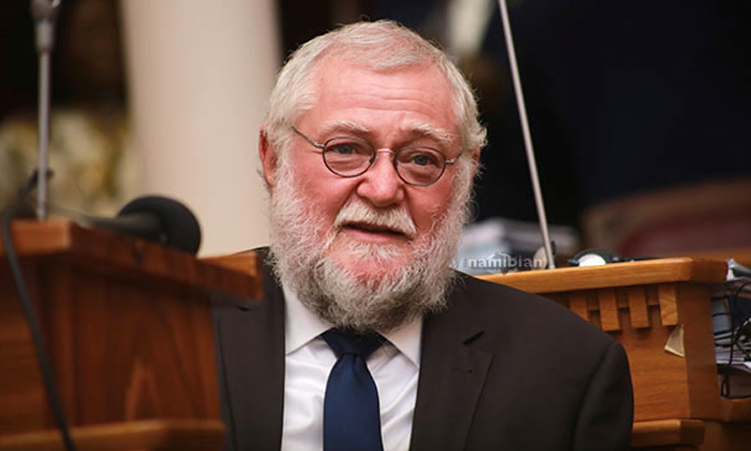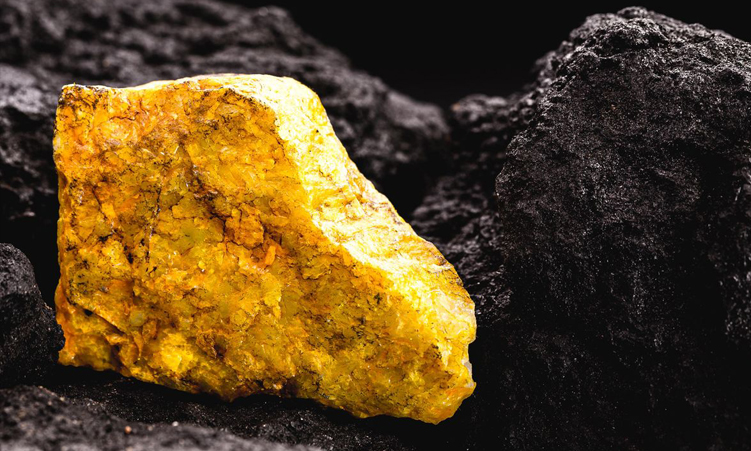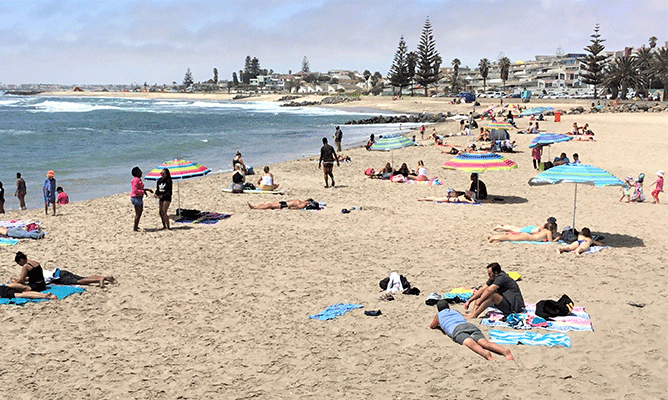Agriculture, water and land reform minister Calle Schlettwein has told a Russian uranium miner that while Namibia cannot survive without water and food, it can live without coal or uranium.
This comes after Headspring Investments, a subsidiary of Russia’s state-owned Uranium One, which is 100% owned by Rosatom, has been searching for uranium in the Omaheke region.
However, there have been concerns, including from the government, that uranium mining could poison the Stampriet Transboundary Aquifer System, the country’s largest water basin which expands into South Africa and Botswana.
According to Schlettwein, the government’s priority is to ensure a reliable supply of water for human consumption and food production, while ensuring that the extraction of minerals does not harm the aquifer.
He said this during a meeting at Mariental on the impacts of uranium mining in the Stampriet Transboundary Aquifer System on Monday.
“The ministry has the mandate to manage, protect, develop, use and conserve water resources and ensure water supply security for Namibia’s social and economic activities. Striking a balance between competing water needs is very challenging, but our priority is to ensure the supply of water for human consumption and food production. At the end of the day, we cannot survive without water and food, but we can live without coal or uranium,” he said.
The Namibian reported recently that the government requested advice and technical assistance from the United Nations Educational, Scientific and Cultural Organisation (Unesco) and the International Atomic Energy Agency (IAEA) to find a way forward on uranium mining.
Schlettwein said Unesco and the IAEA would enable the ministry to make a scientifically based decision.
Speaking on behalf of Unesco, regional director and representative for southern Africa Martiale Kana said the Stampriet Transboundary Aquifer System, a lifeline for the arid regions of Namibia, Botswana and South Africa, is threatened by potential pollution.
Kana said Unesco’s collective responsibility is to ensure that this vital water resource continues to sustain the communities and ecosystems that depend on it.

“Unesco wishes to recall the importance of dialogue and cooperation in the field of water, whether surface or groundwater.
International cooperation is not only desirable but essential, when over 40% of the world’s population lives in transboundary river basins, which account for almost 60% of the world’s freshwater resources.”
Kana said in order to encourage international cooperation in the field of water, Unesco has launched several initiatives.
“In the Stampriet Aquifer, we have set up a joint-management framework, involving Botswana, Namibia and South Africa. In the same vein, Unesco mobilises resources to bring together experts around this great cause of water.”
Kana noted that Unesco also provides technical support to its member states to ensure the quality of freshwater resources and the workshop was an opportunity to exchange information on the issues faced during the sustainable development of transboundary water resources.
Headspring’s mining venture, which ran from 2012 to 2021, has been halted due to Schlettwein’s refusal to grant the company a water permit, citing high environmental risks.
The company has over the years denied any wrongdoing and claims the red flags from the public and the government are filled with “generalisations, wrong assumptions and slanderous, false accusations”.
Speaking at the meeting, agriculture deputy executive director Elijah Ngurare said the impacts of the proposed in-situ leach mining are currently unknown, as this method has never been practised in Namibia or in the Southern African Development Community (SADC) region.
“The ministry has engaged Unesco to assist in acquiring expert advice on this matter. This includes reviewing the environmental impact assessment for the Wings Project, which proposes piloting the in-situ leach methodology and providing case studies where this method has been employed.”
He said Unesco was approached due to having been active in the Stampriet Aquifer between 2013 and 2022.
“It was supporting the three governments sharing the aquifer, Namibia, Botswana and South Africa, for the joint sustainable management and governance of this important transboundary aquifer. In response, Unesco has committed to provide technical support,” Ngurare said.
Stay informed with The Namibian – your source for credible journalism. Get in-depth reporting and opinions for
only N$85 a month. Invest in journalism, invest in democracy –
Subscribe Now!










